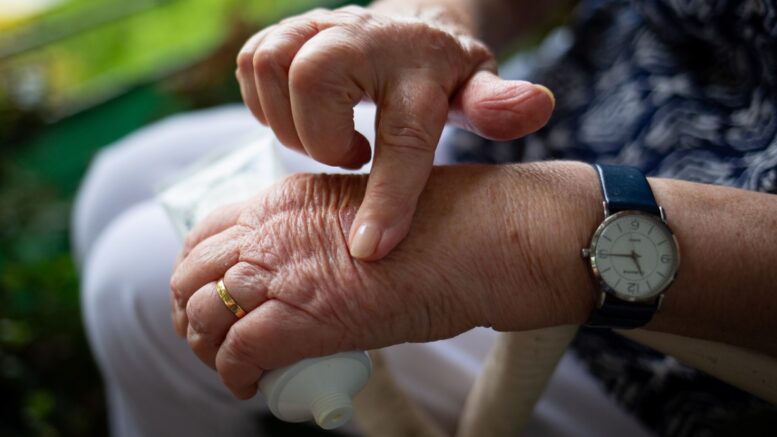Dehydration is a common problem among seniors. It can often lead to other health problems, such as UTIs, dizziness, constipation, and more! Yet, staying hydrated can be a significant challenge for seniors with mobility issues or dementia.
This blog post will discuss some easy everyday habits that can prevent dehydration in seniors. So if you have a senior loved one suffering from dehydration, read on!
Risks of Dehydration in Seniors
Staying hydrated is crucial for everyone, but it is vital for seniors. When we are dehydrated, our bodies can’t function properly. Our cells don’t get the water they need, which leads to several health problems.
Some common symptoms of dehydration in seniors include:
- Dizziness
- Fatigue
- Headache
- Confusion
- Dry mouth and throat
- Increased thirst
- Decreased urination
Preventing Dehydration in Seniors
Preventing dehydration starts with being aware of the signs and symptoms. Once you notice these signs, make sure to take action to help the seniors. You can do a few easy things every day to help prevent dehydration in seniors. These tips are simple, but they make a big difference!
Have a glass of water after waking up
Seniors should develop the habit of drinking a glass of water after waking up from several hours of sleep. It will help them to hydrate their bodies and start the day fresh. It is also helpful if you keep a glass of water on their nightstand and take several sips before sleeping.
Another easy habit is to carry a reusable bottle wherever they go. It can also be an excuse to get up now and then, stretch their legs, walk around the house and drink some water! It will work as a refresher and help keep their energy levels up.
Make drinking easy
Make sure that there are glasses of water in strategic places at home. For example, next to their bed, in the living room, or kitchen table. So basically, anywhere they can easily reach without facing trouble moving from place to place. But make sure those areas are well-lit, too, so seniors won’t trip over anything while getting a glass of water!
Include fluids in the everyday meal plan
As we grow older, our digestion system doesn’t work as well as it used to. This means that we may not absorb necessary fluids from our food intake. That is why it’s essential to include plenty of fluids in our meal plans. This includes drinking plenty of water throughout the day. Also, leafy vegetables, soups, and chicken broth are good sources of fluids.
Don’t delay in taking action
If you feel like your senior loved one is getting dehydrated, don’t wait to take action. It is important to replenish the fluids they need as soon as possible. You can give them water or a sports drink like Gatorade. These drinks help replace electrolytes that are lost in dehydration. So they make it easier for seniors to recover from dehydration faster.
Change snacking habits
Instead of having unhealthy snacks, try replacing them with healthier options. For example, snack on fresh fruits and salads. Watermelon, strawberries, cucumbers not only keep seniors hydrated but also replenish their skin! Likewise, you can make a bowl of salad with fresh vegetables and yogurt. It’s not just healthy but delicious too! This is one of the effective everyday habits that can prevent dehydration in seniors.

Try to avoid diuretics
Sometimes, certain fluids can increase urination. It then leads to dehydration. They include caffeine, alcohol, and other caffeinated beverages. So, try to avoid them as much as possible or limit the consumption. Instead, serve them healthy drinks like fresh fruit juice, smoothies, or milk.
Set reminders
Seniors might forget to drink water or take their supplements on time. So it’s a good idea to set reminders on their phones or place sticky notes on their refrigerators. That will help them stay on track and drink enough fluids throughout the day. This will be very helpful for seniors who have dementia or memory problems.
Educate your senior loved one
Sometimes people don’t realize the importance of staying hydrated, especially as they get older. That’s why it’s important to educate your loved one about the dangers of dehydration and how to prevent it. You can talk about the signs and symptoms of dehydration, as well as ways to increase fluid intake. If your loved one is already following a healthy diet, you can recommend different options, so they have a variety in their diet.
Conclusion
At first, dehydration may not seem like a major concern. But it can lead to some serious, even life-threatening health issues. So make sure your senior loved one is getting enough fluids every day. Also, educate them about dehydration, so they know how to prevent it on their own.
Share these easy everyday habits to prevent dehydration in seniors today, and we hope that they will help them live healthier lives!
